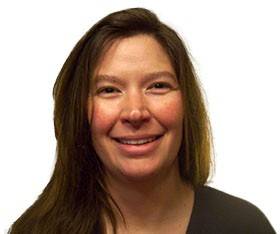Anneliese Schmidt, B.S.

Anneliese Schmidt
Advanced Technical Associate
Milliken Chemical
B.S., Chemistry, University of South Carolina, Upstate
Anneliese Schmidt credits ACS with opening her eyes to the greater world of chemistry. Schmidt earned a bachelor’s degree in chemistry with a minor in math, but it wasn’t until she began attending local section meetings that she really saw how chemistry was applied in the business world. Local section meetings afford her the chance to network with other chemists and access the extensive resources ACS offers.
Don't be afraid to ask questions when you don't know how to do something or how to use a piece of equipment, everyone had to learn at some point in time.
Typical day on the job:
On any given day, I set up appropriate glassware for one or more reactions. I also perform a number of tasks, including:
- Adding reagents/solvents, keeping conditions as desired (e.g. temperature, inert atmosphere, etc.)
- Recording data while the reactions are running
- Working up the reaction (i.e. isolating the product)
- Running analysis of the product (e.g. preparing and running the NMR, running the IR
- Running MP/TLC/HPLC/UPLC, etc.)
- Reporting the results to my supervisor
- Writing reports to be submitted to our legal electronic notebooks
- Consolidating the data into informative tables to be able to review what we have tried.
I often discuss with my supervisor what things have worked, or haven't worked, what my thoughts are on new synthesis paths we might want to try, if there is a better solvent to use, etc. I often review patents or papers to extract, and write, batch sheets (reaction procedures) from them; I also rewrite batch sheets for different charge amounts or different reagents, sometimes even write completely new ones. I frequently do molar conversions and dilution calculations. Before starting any reaction, I review SDS of materials I am not familiar with, or ones I haven't worked with in a long time, to be sure I am aware of the safety measures needed when handling that material.
Work environment:
I work in a laboratory. I have my own hood, bench top space, and desk in the lab. We share equipment, such as glassware. We all tend to have some equipment that we use regularly, and therefore is not shared often, such as hot/stir plates, temperature controllers, some glassware.
There are 13 others that share the laboratory with me and there is some equipment, within our lab, that we all share, such as rotoevaporators, sonicators, and balances.
Work schedule:
I am required 40 hours a week. I have not had to work much overtime. There are some technicians who have had to work a good bit of overtime, but this is dependent upon which project the person is working.
Best productivity trick:
Start the day by making a list, or modifying the previous list, then prioritize and plan out the day; this will help ensure that everything gets done in a timely fashion. When I sit down to write up several reports for the reactions I have run, I will listen to music quietly; it helps me stay focused on what I am doing rather than getting distracted by others conversations in the lab. I will often listen to podcasts when I am getting all of my glassware set up for my reactions or when I am cleaning all of my used glassware and hood/bench space.
Best career advice you've received:
Be involved and ask questions. Don't be afraid to ask questions when you don't know how to do something or how to use a piece of equipment, everyone had to learn at some point in time.
Learn as much as you can about the business that you are in, all aspects including regulatory issues, safety issues, different products that the company makes. Join different teams/committees at the company, we have several different safety teams; this allows for more networking within your own company as well as learning about the processes and importance of things that go on around the company.
Skills or talents that make you a good fit for your job:
I am well organized and very detail oriented. I am also very good at multitasking, which is important as there are often many things going on at once, i.e. while running reactions I may work on writing reports. I may have to go down to the analytical area to run an in-process IR, run an NMR of the products completed the day before, check the rotoevaporator, and/or run in process TLC's.
Essential habit you wish you'd started earlier:
A varied exercise program that I do with and without friends including: hiking, swimming, running, cycling, triathlons, and foot races. It has been an incredible experience that has brought lots of enjoyment to my life. It has also provided much stress relief and clarity to tough decisions and situations, as well as helping me become physically and mentally healthy.
Favorite ACS resource:
I am not sure I can pick just one. The ACS does an excellent job of providing resources for so many things. I really like the Education information and am going to use the "Planning for Graduate Education In Chemistry" extensively. It is great how much information is available for teacher and students here. I also hope to spend more time looking through all of the information regarding careers and hope to be able to take some more of the leadership classes.
How you've benefited from being an ACS member:
I have become aware of things that I would not have otherwise been aware of. I have thoroughly enjoyed the LS meetings with speakers; these have allowed for some Networking and exposure to some other ways/areas chemsitry is applied in the business world. I have only just begun to realize the extensive number of resources and am looking forward to exploring.

